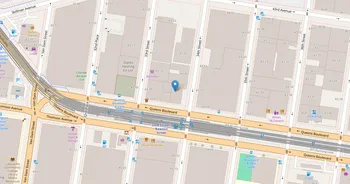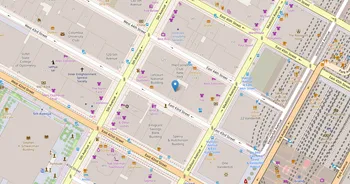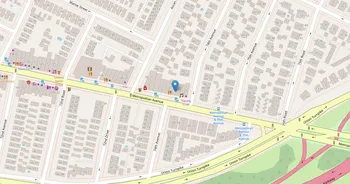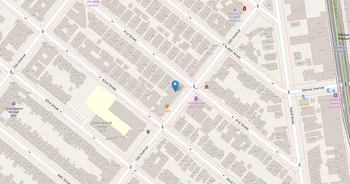Barnard College : Overview, Courses, Scholarships & Rankings
About Barnard College
A women-centered college in Manhattan, Barnard is known for rigorous liberal arts across the humanities, social sciences, sciences, and the arts. Students learn in small seminars, labs, and studios, backed by advising, writing help, career guidance, and wellness care. A bright library anchors campus life, alongside creative labs, performance venues, and residence halls that frame quiet courtyards.
Student life runs on curiosity and voice. Clubs, media, performance, and civic engagement set the tone, with fitness centers and nearby parks for balance. The culture is outspoken yet welcoming, with a reputation for collaborative leadership. Ties to a major research university next door broaden courses, labs, and networks. And the city supplies internships and mentorship. Morningside Heights and Harlem add neighborhood texture. Alumni include Zora Neale Hurston and Greta Gerwig.
Key Institutional Details
Contact & Profile
Academic & Institutional
Academic Programs & Fields of Study
Barnard College offers 56 degree programs across 17 major academic fields, graduating approximately 989 students annually. The most popular fields by graduate volume are Social Sciences (6 programs, 259 graduates), Biological Sciences (7 programs, 127 graduates), Psychology (1 programs, 110 graduates), Interdisciplinary (9 programs, 93 graduates) and Arts (5 programs, 67 graduates). Explore program details, award levels, and graduate demographics below.
Social Sciences (6 programs, 259 graduates)
Sociology, Anthropology and Political Science Studies
| Program Name | Graduates | Gender Distribution | Award Levels | CIP Code |
|---|---|---|---|---|
| Econometrics and Quantitative Economics | 93 |
|
Bachelor's
|
45.0603 |
| Political Science and Government | 67 |
|
Bachelor's
|
45.1001 |
| Anthropology | 32 |
|
Bachelor's
|
45.0201 |
| Urban Studies and Affairs | 31 |
|
Bachelor's
|
45.1201 |
| Sociology | 27 |
|
Bachelor's
|
45.1101 |
| Economics | 9 |
|
Bachelor's
|
45.0699 |
Biological Sciences (7 programs, 127 graduates)
Life Sciences, Biotechnology and Biomedical Research
| Program Name | Graduates | Gender Distribution | Award Levels | CIP Code |
|---|---|---|---|---|
| Neuroscience | 68 |
|
Bachelor's
|
26.1501 |
| Biology and Biological Sciences | 19 |
|
Bachelor's
|
26.0101 |
| Cell and Molecular Biology | 17 |
|
Bachelor's
|
26.0406 |
| Biochemistry | 13 |
|
Bachelor's
|
26.0202 |
| Environmental Biology | 5 |
|
Bachelor's
|
26.1305 |
| Ecology and Evolutionary Biology | 3 |
|
Bachelor's
|
26.1310 |
| Cell Physiology | 2 |
|
Bachelor's
|
26.0903 |
Psychology (1 programs, 110 graduates)
Psychological Sciences, Mental Health and Behavioral Studies
| Program Name | Graduates | Gender Distribution | Award Levels | CIP Code |
|---|---|---|---|---|
| Experimental Psychology | 110 |
|
Bachelor's
|
42.2799 |
Interdisciplinary (9 programs, 93 graduates)
Cross-Disciplinary Studies and Integrated Research Programs
| Program Name | Graduates | Gender Distribution | Award Levels | CIP Code |
|---|---|---|---|---|
| Multi- and Interdisciplinary Studies | 33 |
|
Bachelor's
|
30.9999 |
| Cognitive Science | 17 |
|
Bachelor's
|
30.2501 |
| Sustainability Studies | 14 |
|
Bachelor's
|
30.3301 |
| Mathematical Economics | 11 |
|
Bachelor's
|
30.4901 |
| Data Analytics | 11 |
|
Bachelor's
|
30.7199 |
| Biological and Physical Sciences | 3 |
|
Bachelor's
|
30.0101 |
| Ancient Studies and Civilization | 2 |
|
Bachelor's
|
30.2201 |
| Mathematics and Computer Science | 1 |
|
Bachelor's
|
30.0801 |
| Medieval and Renaissance Studies | 1 |
|
Bachelor's
|
30.1301 |
Arts (5 programs, 67 graduates)
Fine Arts, Design Studies and Creative Performance
| Program Name | Graduates | Gender Distribution | Award Levels | CIP Code |
|---|---|---|---|---|
| Art History and Conservation | 26 |
|
Bachelor's
|
50.0703 |
| Film and Media Studies | 17 |
|
Bachelor's
|
50.0601 |
| Dance | 11 |
|
Bachelor's
|
50.0301 |
| Theatre Arts | 9 |
|
Bachelor's
|
50.0501 |
| Music | 4 |
|
Bachelor's
|
50.0901 |
Computer & IT (1 programs, 62 graduates)
Computer Science, Information Technology and Cybersecurity
| Program Name | Graduates | Gender Distribution | Award Levels | CIP Code |
|---|---|---|---|---|
| Computer Science | 62 |
|
Bachelor's
|
11.0701 |
English (1 programs, 57 graduates)
English Literature, Creative Writing and Literary Analysis
| Program Name | Graduates | Gender Distribution | Award Levels | CIP Code |
|---|---|---|---|---|
| English Language and Literature | 57 |
|
Bachelor's
|
23.0101 |
Cultural Studies (5 programs, 43 graduates)
Cultural Anthropology, Ethnic Studies and Social Group Research
| Program Name | Graduates | Gender Distribution | Award Levels | CIP Code |
|---|---|---|---|---|
| American Studies | 21 |
|
Bachelor's
|
05.0102 |
| Women's Studies | 15 |
|
Bachelor's
|
05.0207 |
| African Studies | 3 |
|
Bachelor's
|
05.0101 |
| Russian Studies | 2 |
|
Bachelor's
|
05.0110 |
| Area Studies | 2 |
|
Bachelor's
|
05.0199 |
History (1 programs, 37 graduates)
Historical Studies, Cultural Heritage and Archaeological Research
| Program Name | Graduates | Gender Distribution | Award Levels | CIP Code |
|---|---|---|---|---|
| History | 37 |
|
Bachelor's
|
54.0101 |
Public Services (1 programs, 36 graduates)
Public Administration, Social Work and Community Services
| Program Name | Graduates | Gender Distribution | Award Levels | CIP Code |
|---|---|---|---|---|
| International Policy Analysis | 36 |
|
Bachelor's
|
44.0504 |
Admission Requirements & Test Scores
Comprehensive overview of admission criteria, standardized test score ranges, and application requirements for prospective students at Barnard College.
Application Requirements
Data based on IPEDS for 2022-2023 academic year. Test score ranges represent the middle 50% of admitted students (25th-75th percentile). Requirements may vary by program.
Tuition, Fees & Estimated Costs
Overview of tuition rates, housing, and other annual education expenses for undergraduate and graduate students
Financial Aid & Student Support
Summary of scholarships, grants, student loans, and financial aid statistics for undergraduate students
Student Success Metrics
Graduation rates and post-graduation earnings to help assess student outcomes and long-term value of education.
Loan Burden & Repayment Outcomes
Breakdown of loan repayment rates and student debt levels by income and dependency status.
Frequently Asked Questions
Find answers to the most common questions about Barnard College
How much does it cost to attend Barnard College?
The annual tuition at Barnard College is $66,246 for in-state students. When including room and board, books, and other expenses, the total estimated cost is approximately $89,808 for in-state students. Additional costs include room and board $20,582 and books and supplies $1,150.
Data based on IPEDS program completions for 2022-2023 academic year. Tuition and cost estimates are approximate and may not include all fees, personal expenses, or transportation costs.
What academic programs and degree levels does Barnard College offer?
Barnard College offers 56 academic programs across 17 major fields of study, with available degree levels: Bachelor's.
Most popular program areas include:
- Sociology, Anthropology and Political Science Studies (6 programs)
- Life Sciences, Biotechnology and Biomedical Research (7 programs)
- Psychological Sciences, Mental Health and Behavioral Studies (1 programs)
- Cross-Disciplinary Studies and Integrated Research Programs (9 programs)
- Fine Arts, Design Studies and Creative Performance (5 programs)
Data based on IPEDS program completions for 2023-2024 academic year. Numbers reflect programs where students graduated, not all offered programs.
What is the acceptance rate for Barnard College?
Barnard College has an 8% acceptance rate and a 75.6% yield rate, making it highly selective.
Admission statistics breakdown:
- Total applicants: 11,803
- Students admitted: 940
- Students enrolled: 711
Data based on IPEDS for 2022-2023 academic year. Admission statistics may vary by program and application cycle.
What financial aid and scholarships are available at Barnard College?
Barnard College provides financial aid to 20% of first-time, full-time students, with average grants of $56,190 and average loans of $7,781.
Average financial aid amounts by type:
- Pell grants: $5,147
- State/Local grants: $3,098
- Institutional grants: $52,716
- Federal loans: $4,838
The university supports 334 students with grants and 408 students with loans annually.
Data based on IPEDS for 2022-2023 academic year. Financial aid amounts and percentages may vary by program, enrollment status, and individual circumstances.
What is the average salary for Barnard College graduates?
Barnard College graduates earn a median salary of $60,411 after 6 years and $80,516 after 10 years.
The salary range 10 years after graduation spans from $54,604 (25th percentile) to $122,978 (75th percentile), with top earners reaching $127,400 (90th percentile).
Data based on IPEDS for 2022-2023 academic year. Salary data reflects graduates who received federal financial aid (approximately 60% of all graduates). Actual earnings may vary significantly based on program, location, and individual circumstances.
Related Universities




Found something useful? Help others discover it too! Share with friends, on social media, or save for later - every share helps someone find the information they need.